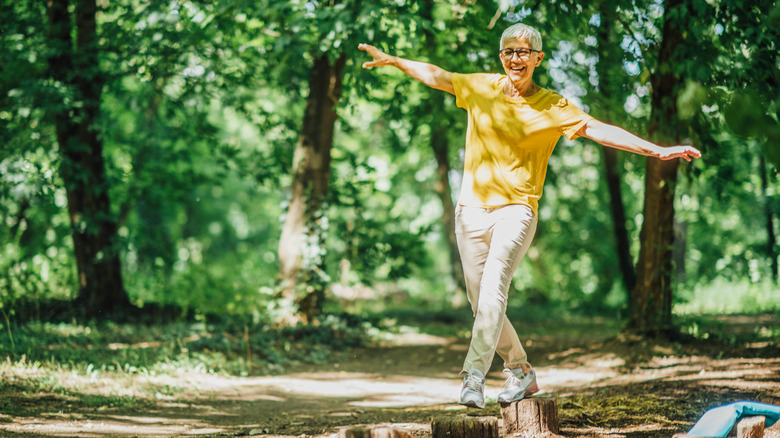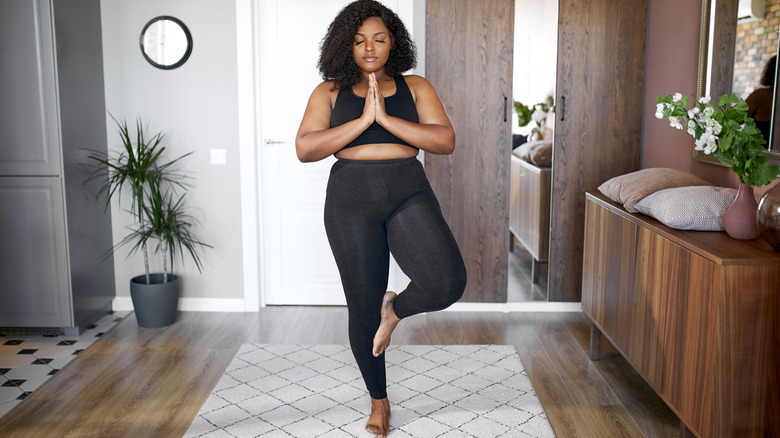Your Balance Can Reveal More About Your Health Than You Think
We all might have walked on a balance beam in gym class while we were kids, but the ability to balance later in life can help predict your health. According to a recent study in the British Journal of Sports Medicine, people who could stand for 10 seconds on one leg were more likely to live longer than those who could not.
The researchers looked at the overall health of more than 1,700 participants between the ages of 51 to 75 and tracked them for almost a decade. Each participant was asked to balance barefoot on a single leg for 10 seconds. Those who succeeded were classified as "yes," and those who did not were classified as "no." In the 51-55 age range, less than 5% couldn't balance on one foot for 10 seconds. The percentage of people who were unsuccessful increased with age, with more than half of the participants in the 71-75 age range being unable to balance on one foot. After almost a decade, those participants in the "no" group had a higher proportion of deaths than the "yes" group. In other words, those who had problems balancing on a single foot had a higher mortality rate even when controlling for age, body mass index (BMI), and chronic disease.
Why balance is important
The National Institute on Aging says that our balance suffers as we get older. However, balance issues can sometimes occur when a part of our inner ear is swollen, and certain conditions and medications can also cause dizziness and problems with balance. After road traffic deaths, falls account for the second largest cause of unintended deaths, according to the World Health Organization. Most of these fatal falls occur in people over the age of 60. Even if someone survives a fall, up to 30% of them can result in moderate to severe injury.
Balance is particularly important as we age and should be part of our workout routine. According to the Harvard Medical School, an older adult heads to the emergency room every 11 seconds for a fall, and every 19 seconds, a fall results in death. When balance begins to fail, it sets up an overall decline in health. Specifically, if someone suffers from a fall, the fear of falling can limit physical activity and mobility.


